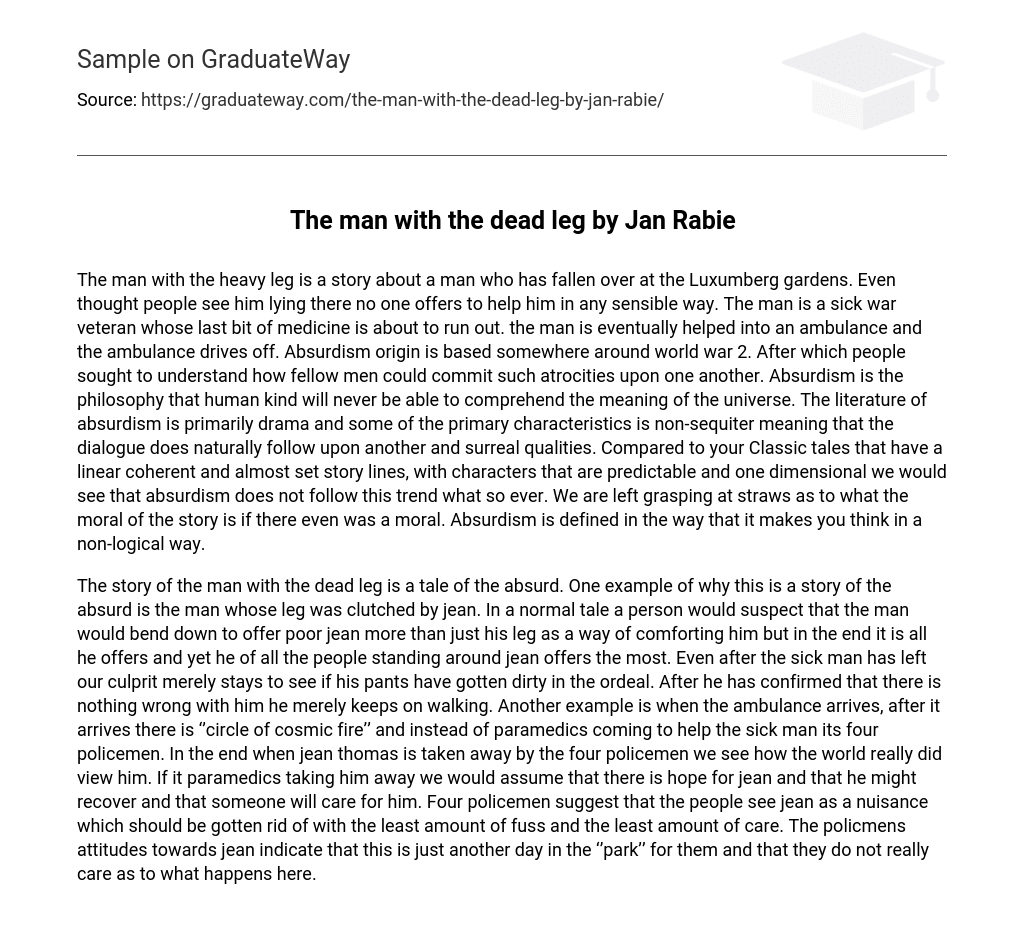“The Man with the Heavy Leg” is a story set in Luxumberg gardens, where a man has fallen over. Despite being seen by others, he is not offered any meaningful assistance. This man is a sick war veteran whose medication is running out. Eventually, he is helped into an ambulance, which drives away. Absurdism originated post-World War 2, when people tried to understand the reason behind the atrocities committed by others. Absurdism is a philosophical belief that humans can never comprehend the universe’s meaning. The literature associated with absurdism primarily consists of drama and embodies non-sequitur dialogue and surreal qualities. Unlike classic tales with linear and predictable storylines, absurdism defies such conventions. Consequently, we are left uncertain about the story’s moral, if it even exists. Absurdism challenges our logical thinking and forces us to consider alternative perspectives.
The story of the man with the dead leg is an absurd tale. One example of its absurdity is the man, whose leg was clutched by Jean. In a normal story, one would expect the man to offer more than just his leg as a way of comforting Jean. However, all he offers is his leg, and yet, among the people standing around Jean, he offers the most. Even after the sick man leaves, our culprit remains to check if his pants are dirty. Once he confirms that he’s unharmed, he continues walking. Another example is when the ambulance arrives. Instead of paramedics, four policemen arrive in a ‘circle of cosmic fire’, suggesting that instead of providing medical help, they see Jean as a nuisance to get rid of without much care. When Jean is taken away by the policemen, it becomes evident that the world views him in a negative light. If it were paramedics taking him away, there would be hope for his recovery and someone caring for him. The policemen’s attitudes indicate that this interaction is just another routine occurrence for them in the ‘park’, reflecting their lack of concern for what happens here.





